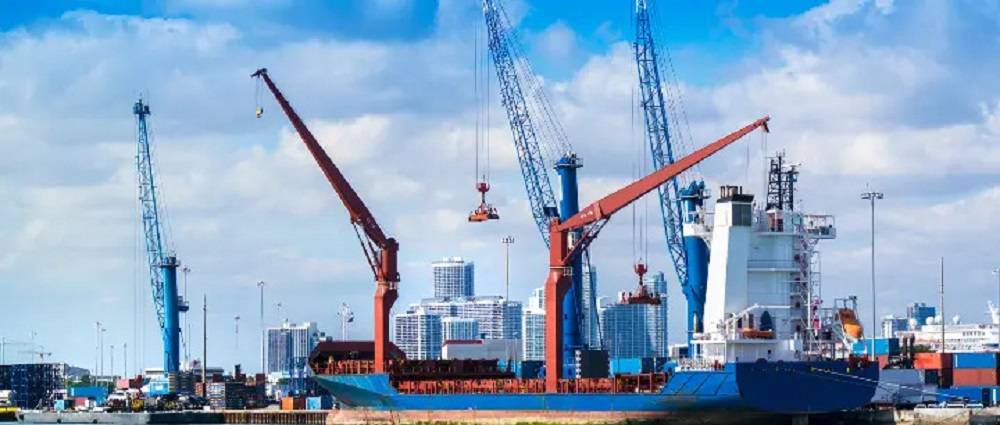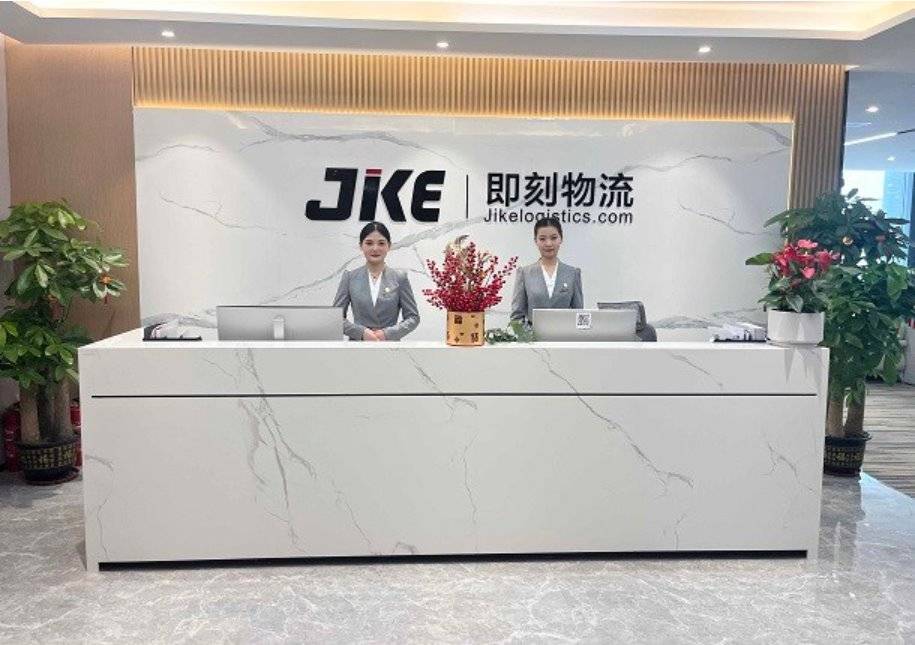2025-01-31
In the expansive realm of international trade, transportation terms are pivotal for ensuring the seamless and efficient movement of goods. FOB (Free On Board), also known as "delivery on board," is a significant term within the International Commercial Terms (Incoterms) and is extensively utilized in global commerce. This article delves into the meaning, operational process, benefits, and challenges of FOB Asia terms, as well as their application in contemporary international trade.
FOB Asia pertains to the delivery terms at an Asian port. Under FOB terms, the seller is accountable for transporting the goods to the designated Asian port and completing delivery once the goods have crossed the ship's rail. At this juncture, the risk associated with the goods transitions from the seller to the buyer, who then assumes all subsequent costs and risks, encompassing transportation, insurance, and customs clearance.
FOB Asia terms are prevalent in international trade, particularly in Asia's export sector. They provide a clear delineation of responsibilities between buyers and sellers, aiding in the reduction of misunderstandings and disputes during transactions. By leveraging FOB Asia terms judiciously, companies can enhance supply chain management, diminish operational costs, and bolster market competitiveness.

Outlined below is the general operation process under FOB Asia terms:
Cost-Effectiveness Sellers are solely responsible for transporting goods to Asian ports, allowing buyers to select the most economical transportation method and route based on their specific needs and resources, thereby reducing overall transportation costs.
Flexibility Buyers enjoy greater flexibility in transportation and insurance, enabling them to choose the most suitable transportation service provider and insurance plan based on the characteristics and destination of the goods.
Risk Control The risk transfers from the seller to the buyer once the goods cross the ship's rail, allowing the buyer to better manage transportation risks in accordance with their own risk management strategy.
Streamline the Process Sellers are spared the complexities of international transportation and destination port customs clearance, enabling them to focus on the production and delivery of goods, thus simplifying operational processes.
While FOB Asia terms offer significant benefits in international trade, they also present a series of challenges. Buyers must possess robust logistics management capabilities, be well-versed in international transportation and customs clearance procedures, select reliable suppliers, and implement effective risk management measures. By addressing these challenges judiciously, buyers can ensure the smooth transportation and delivery of goods, reduce operational risks, and enhance the efficiency and reliability of the supply chain.
Increased Buyer Responsibility Under FOB Asia terms, buyers assume all transportation, insurance, and customs clearance costs from the Asian port to the final destination. This not only escalates the buyer's responsibilities but also demands strong logistics management and coordination skills. Buyers must be intimately acquainted with the intricate processes of international transportation and customs clearance to ensure the seamless and efficient movement of goods.
Complex Logistics Coordination Buyers need to orchestrate multiple transportation segments, including sea or air transport from Asian ports to destination ports, and inland transport from destination ports to the final receiving location. This necessitates collaboration with multiple transportation service providers and customs clearance agents to ensure the flawless connection of each segment. Delays or issues in any segment can lead to delayed deliveries and increased costs.
Market Volatility Risk Fluctuations in transportation market prices can significantly impact the buyer's transportation costs. For instance, rising fuel prices, increased transportation demand, or changes in transportation routes may result in higher transportation costs. Buyers need to closely monitor market dynamics and adjust their transportation strategies in a timely manner to mitigate risks associated with market price fluctuations and transportation delays.
Export Customs Clearance Requirements Sellers must ensure the completion of all necessary export customs clearance procedures and provide comprehensive export documents, such as commercial invoices, packing lists, and export licenses. Failure by the seller to promptly complete export customs clearance or provide incomplete documentation may cause delays at Asian ports, increasing the buyer's waiting time and costs.
Complexity of Customs Clearance at the Port of Destination Buyers are responsible for completing import customs clearance procedures at the destination port and are liable for all duties, taxes, and related fees. Import customs clearance requirements vary by country, and buyers need to be well-versed in and compliant with local laws and regulations to ensure the smooth passage of goods through customs. Any customs clearance issues may result in the detention of goods, increasing storage fees and time costs.
Exchange Rate Fluctuation Risk In international trade, exchange rate fluctuations can impact the buyer's costs. If the buyer uses foreign currency for payments related to transportation, insurance, and customs clearance, adverse exchange rate movements may lead to increased costs. Buyers need to implement appropriate exchange rate risk management measures, such as utilizing foreign exchange hedging tools, to minimize the impact of exchange rate fluctuations.
Political and Economic Instability Political and economic instability in the destination country can affect the import and customs clearance of goods. For example, changes in trade policies, tariff adjustments, political unrest, or natural disasters may result in the detention of goods or additional costs. Buyers need to closely monitor the political and economic developments in the destination country and prepare accordingly.
Why Choose Jikeship as Your FOB Asia Freight Forwarder?

Welcome to Jikeship, a leading transportation and customs clearance service provider based in the strategic hub of Shenzhen, China. With our expertise, we streamline your logistics and ensure seamless transit for all your import, export, and transit needs in all Chinese Ports & Airports.
Jikeship, we understand that navigating customs can be complex and time-consuming. Our experienced team offers a comprehensive range of customs clearance services tailored to meet the specific requirements of your goods, ensuring quick and efficient processing.
Import and Export Clearance We handle all customs formalities for imported and exported goods, from documentation to duty payments, ensuring compliance with Chinese and international regulations.
Transit Procedures Our services facilitate the smooth transit of goods through China, minimizing delays and ensuring timely delivery.
We pride ourselves on providing top-notch logistics services that cater to a variety of needs:
Efficient Shipping Solutions Whether you're shipping domestically or internationally, we provide reliable and cost-effective shipping solutions, supported by our robust network of partners.
Warehousing and Storage Our state-of-the-art facilities offer secure storage for your goods, ensuring they are handled with the utmost care and precision.
Logistical Support From packaging to freight forwarding, we cover all aspects of logistics, ensuring that your goods reach their destination safely and efficiently.
Experienced Professionals Our team comprises highly skilled professionals with extensive knowledge of customs regulations and logistics management.
Customized Solutions We provide tailored services to meet the unique needs of each client, ensuring optimal outcomes for your business.
Strategic Location Situated in Shenzhen, a key logistics hub, we leverage our location to offer efficient and cost-effective solutions for all your transportation and customs needs.
Partner with Jikeship for all your transportation and customs clearance needs in China. Visit our website or contact us today to learn more about how we can support your business.
| FOB Asia Freight Services |
1. What does “Asia” in FOB Asia signify?
In FOB Asia, "Asia" denotes the continent of Asia, indicating that the port of shipment for the goods is situated within Asia.
2. What are the seller's principal obligations?
Under FOB Asia, the seller's principal obligations include loading the goods that meet the contract specifications onto the vessel designated by the buyer within the shipment period stipulated in the contract and promptly issuing a shipping notice to the buyer; bearing all costs and risks until the goods have crossed the ship's rail at the port of shipment; completing the export procedures for the goods and obtaining an export license or other authorization; and providing a commercial invoice and a shipping document or equivalent electronic document evidencing that the goods have been delivered to the ship.
3. What are the buyer's key obligations?
The buyer's main obligations encompass chartering a ship or booking a container ship, paying the freight, and promptly notifying the seller of the sailing date, ship name, and loading place; bearing all costs and risks after the goods have crossed the ship's rail at the port of shipment; arranging insurance and paying the insurance premium; accepting the goods and documents delivered by the seller in accordance with the contract and paying the purchase price; and handling all customs procedures for the import of goods and, if necessary, transit transportation through another country.
4. What does the FOB Asia price include?
It usually includes all costs from the production of the goods to the loading onto the vessel designated by the buyer, but does not include freight, insurance or other additional costs after loading onto the vessel.
5. What is the difference between FOB Asia and CIF Asia?
The main difference between FOB Asia and CIF Asia is the different points of division of responsibilities and costs. Under FOB Asia, the seller's responsibilities and costs are transferred to the buyer after the goods are loaded on the vessel; while under CIF Asia, the seller needs to bear the freight and insurance costs of transporting the goods to the destination port until the goods are delivered to the buyer at the destination port.
6. Is it applicable to all types of cargo?
Applicable to all types of goods, but particularly useful for bulk commodities and sea freight. For small shipments or air freight, other more appropriate trade terms may be used.
7. If the goods are damaged at the shipping port, who is responsible?
If the goods are damaged before they pass the ship's rail at the port of shipment, the liability is borne by the seller; if the goods are damaged after they pass the ship's rail, the liability is transferred to the buyer.
8. Are stowage and trimming charges included?
FOB Asia itself does not include stowage and trimming costs. However, in practice, the buyer and seller can negotiate and clearly stipulate in the contract who will bear these costs. For example, FOB Stowed (FOBS) means that the seller is responsible for loading the goods into the hold and bears the loading costs including stowage costs; while FOB Trimmed (FOBT) means that the seller is responsible for loading the goods into the hold and bears the loading costs including trimming costs.
| Free Freight Quote from China |
| Contact for FOB Asia Freight Services |

Incoterm DPU: a detailed guide for you! We provide clear guidance and protection for buyers and sellers.
2024-12-11

Proper use of the LCL Shipping Calculator allows you to understand the cost structure of ocean freight more accurately, enabling more informed logistics decisions.
2025-01-10

What car shipping documents are needed for car imports to your country? How do automotive trade tariffs affect exports from China? Check here!
2025-01-03
We use third-party cookies in order to personalise your experience.
Read our cookie policy